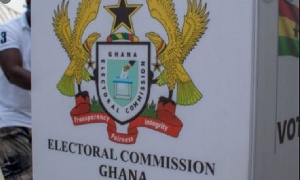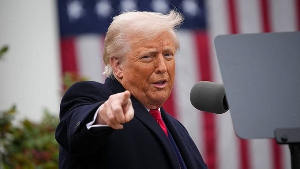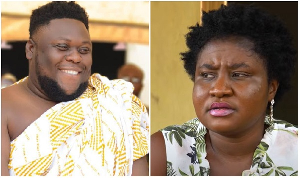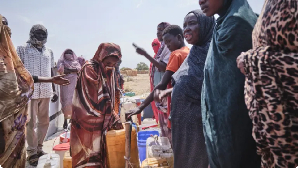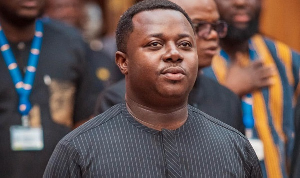A Personal Voting Journey
My journey to casting my ballot in the 2024 general elections was a long and winding one, marked by missed opportunities and bureaucratic hurdles. I first registered for a voter ID card in 2004 while studying at KNUST, full of youthful enthusiasm to participate in our democracy.
However, my inability to transfer my vote to my village during the holidays under President Kufuor's administration meant I couldn't exercise my franchise that year.
The 2008 general elections brought fresh hope. I successfully completed the vote transfer process from the KNUST campus to my village, only to arrive on election day and find my name conspicuously absent from the voter roll.
This disappointment was compounded when I left Ghana in 2009 to pursue further studies (MSc. & PhD degrees) abroad, causing me to miss three consecutive general elections.
Each time election season came around while I was overseas, I felt a pang of guilt and frustration at being unable to contribute to shaping my nation's future. It was indeed refreshing to have cast my vote in the high-stakes 2024 general elections.
The Call to Participate in 2024
As the 2024 general elections approached, the stakes felt higher than ever. Ghana stood at a crossroads, with the Akufo-Addo-Bawumia administration having squandered much of the goodwill it initially enjoyed.
The economic hardships, corruption scandals, and blatant mismanagement of national resources had reached unbearable levels. For me, this election wasn't just about voting - it was about reclaiming Ghana's soul.
When I arrived at my polling station in Kawu, Wa West Constituency on December 7, the scene took my breath away. The line stretched farther than I'd ever seen, composed of elderly citizens leaning on canes, mothers with babies strapped to their backs, young professionals as well as me who had traveled from abroad specifically to vote.
The air buzzed with quiet determination. As I took my place in the queue, I struck up conversations with fellow voters who shared stories of why they came: a farmer who could no longer afford fertilizers due to skyrocketing prices, a teacher frustrated by the deteriorating education system, and a nurse decrying the collapse of our healthcare infrastructure.
A Nation's Resounding Verdict
The collective decision to reject the Akufo-Addo-Bawumia government became evident as results trickled in. What struck me most was not just the outcome, but the margin of victory for President Mahama and the NDC in traditionally NPP strongholds. Thus, areas that had consistently voted for the NPP party swung decisively to the NDC, signaling a nationwide awakening. The Akufo-Addo administration's failures were too numerous to ignore:
1. Economic Mismanagement: The much-touted economic transformation had instead delivered the worst debt crisis in our history, with the controversial Domestic Debt Exchange Program (DDEP) wiping out citizens' savings.
2. Corruption Epidemic: Scandals like the missing excavators, the Australia visa fraud, and the gold-for-oil debacle revealed a government more interested in self-enrichment than public service.
The Deeper Meaning of Change
Beyond the political shift, the 2024 election represented something more profound: a reclamation of democratic power by ordinary citizens. The sight of the youth, the sick, and the octogenarians waiting or sitting for hours in the sun to vote demonstrated that Ghanaians still believed in the power of the ballot. The diaspora turnout, including myself, showed that distance couldn't diminish patriotic duty.
This wasn't just about removing an unpopular government; it was about restoring faith in our democratic institutions. The peaceful transition of power that followed proved that Ghana's democracy, while bruised, remained resilient.
The Reset Begins
In the months since the election, President Mahama's administration has moved swiftly to implement key aspects of the "Resetting Ghana" agenda. For example, the repeal of burdensome taxes like e-levy brought immediate relief to businesses and individuals.
Also, the reduction of ministries from 30 to 23 demonstrated a commitment to cutting wasteful expenditure. Most importantly, the formation of the "Plasma Team" - a lean, technocratic group tasked with driving implementation - signaled a break from the bloated, inefficient governance of the past.
Looking Forward
As I reflect on my long-delayed opportunity to vote and its impact, I'm reminded that democracy requires constant vigilance. The 2024 general election wasn't an endpoint, but a new beginning. The challenges ahead remain daunting - rebuilding our economy, restoring trust in public institutions, and healing national divisions.
Yet, for the first time in years, hope flickers on the horizon. The resilience shown by Ghanaian voters has reaffirmed my belief in our collective future. As we embark on this reset, I'm committed to playing my part beyond just voting - through civic engagement, community service, and holding leaders accountable.
The 2024 general election taught me that change is possible when citizens unite behind a common purpose. May we never forget this lesson as we work to build the Ghana we deserve. Long live our nation Ghana, and long live our democracy.
Opinions of Thursday, 3 April 2025
Columnist: John-Baptist Naah

